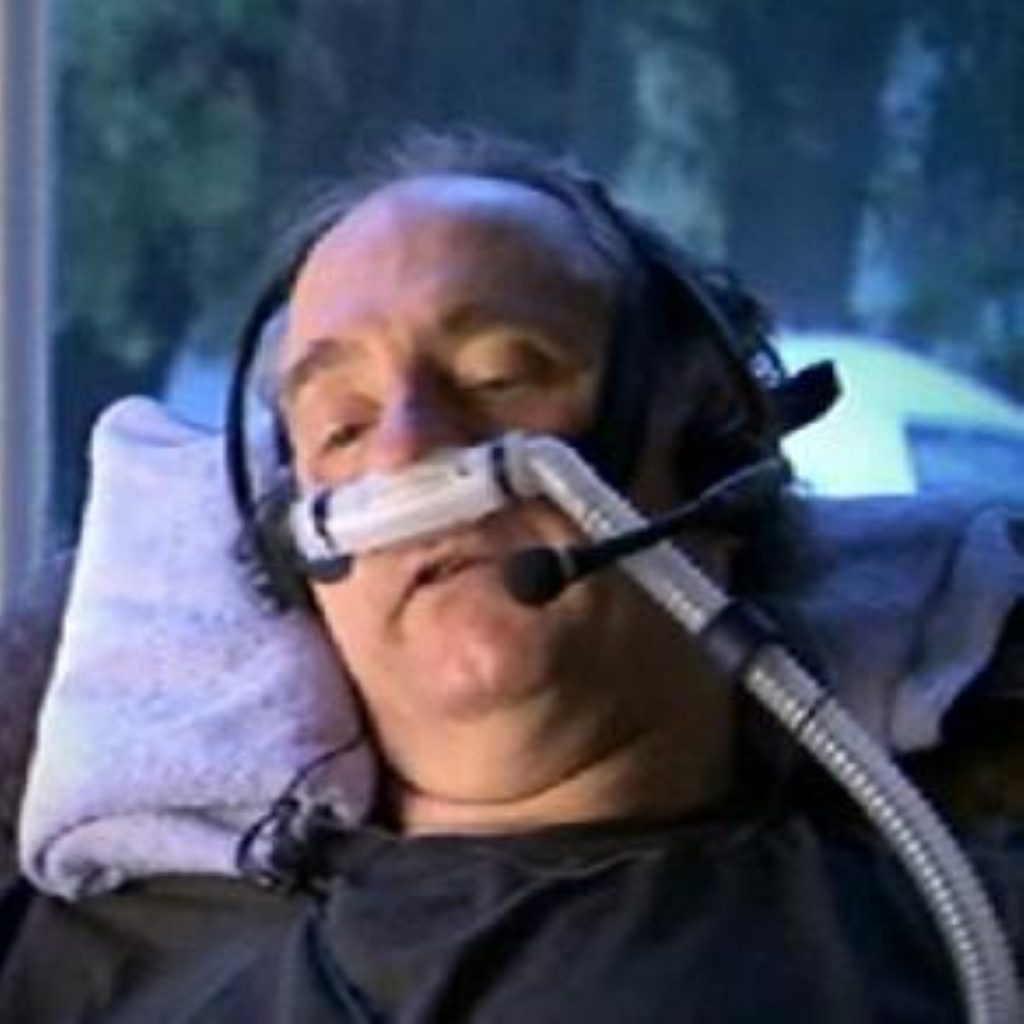PM wades into euthanasia TV debate
Gordon Brown has waded into the debate on tonight’s programme showing a man dying in an assisted suicide clinic in Switzerland.
Asked by the MP whose constituency the dying man lived in – Phil Willis – whether he thought the programme was in the public interest or represented an example of “distasteful voyeurism”, Mr Brown gave a nuanced reply.
First he urged programme-makers to handle the issue “sensitively and without sensationalism”.
But he then stressed the broadcasting authority would be following the programme carefully, indicating Ofcom would be assessing whether the programme was impartial or promoted assisted dying.


Any deviation from those lines would contravene the Communications Act.
Mr Brown outlined his opposition to legislation for assisted deaths.
“These are very difficult issues and we should remember that at the heart of every single individual case is a family in difficult circumstances facing a difficult choice.
“It’s necessary to ensure that we never see in this country where sick or elderly people feel pressurised to agree to death or regard it as the right thing to do.”
Viewers who watch Sky Real Lives’ Right to Die? tonight will see former university professor Craig Ewart opt to kill himself rather than succumb further to motor neurone disease – the first time an assisted suicide has been shown on UK television.
The documentary comes a day after prosecutors said it was not in the public interest to prosecute Mark and Julie James, whose son Daniel was paralysed from the chest down.
Daniel travelled to the same Dignitas clinic Mr Ewart visited two years ago to end his life.
In tonight’s documentary viewers will see 59-year-old Mr Ewart, who summarised his options as “death or suffering and death”, drink a mixture of apple juice and sedatives before turning a ventilator off with his teeth.
His widow Mary has defended the film, describing it as a “wonderful tribute” to her husband.
“I have absolutely no regrets about agreeing to leave the camera rolling as Craig died. It’s what we both wanted,” Mrs Ewart told the Daily Mail.
“The only time I asked the film crew to leave was around 30 minutes after Craig had died. I needed to cry and I wanted to do that alone. If this film gets people thinking about death and talking about it, that’s all that Craig would have wished.”
Writing for the Independent, Mr Ewart’s widow said her husband was “horrified” about getting to the point where he could not do anything about his disease.
“For Craig, my husband, allowing the cameras to film his last moments in Zurich was about facing the end of life honestly,” she said. “This wasn’t a film about him personally.”
Campaign group Dignity in Dying is calling for a full public debate on whether current UK laws are fit for purpose.
“Due to a lack of a safeguarded choice, people are forced into making desperate and often dangerous decisions, people are travelling abroad to die, there are ‘mercy killings’, botched suicides and some doctors already assist their patients to die at great potential cost to their livelihood and freedom,” said its chief executive Sarah Wootton.
Care Not Killing said it was unfortunate so much media attention had been given to Daniel James as it created a “false impression that it is common not to be able to find meaning, purpose and hope in life if one has a severe disability”.
The anti-assisted suicide group added that the current law protected vulnerable people from exploitation and abuse.
“Any weakening of it would inevitably place pressure on people with disability, depression, or terminal or chronic illness to contemplate early death so as not to be a burden upon families, carers or the cash-strapped health service,” Care Not Killing said.
“The right response is for us to invest more in prevention and care, and to ensure that laws protecting vulnerable people remain in place.”









